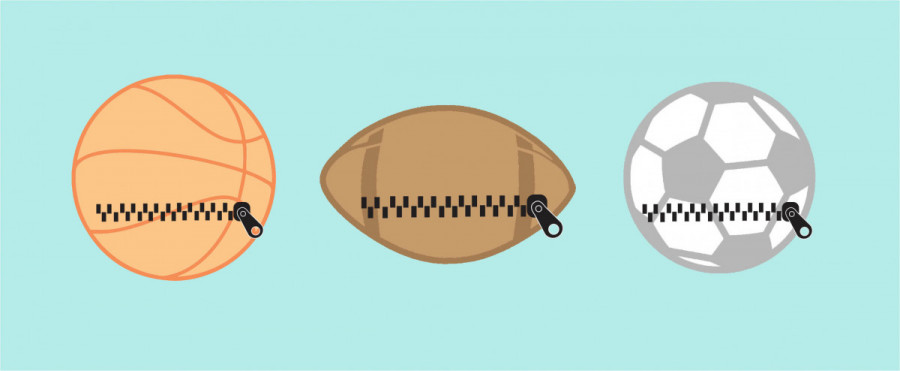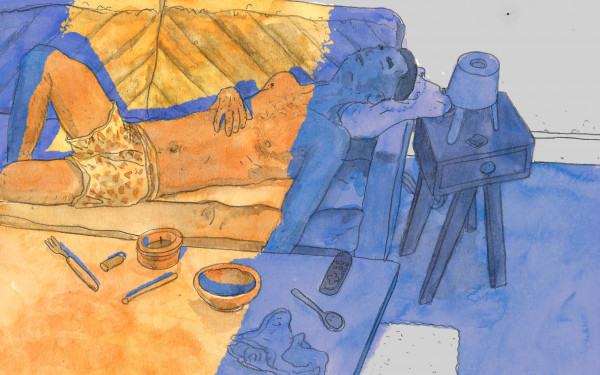Shut Up and Dribble: Discrimination at the 2024 Olympics
Despite boasting first gender-equal Games, the Olympics still let people down
The Olympic Games tend to produce lots of fun moments for fans. These are moments of national pride and unity. After all, the slogan at this year’s opening ceremony was “Réunir ceux qui s’aiment,” which translates to “Reuniting those who love each other.”
But these past summer Olympics in Paris left many viewers shaking their heads.
Take the controversy around Imane Khelif. She was disqualified from the 2023 International Boxing Association World Championships for reportedly failing gender eligibility tests. The tests allegedly revealed that Khelif has XY chromosomes, although the results have yet to be disclosed.
Many on social media—including prominent figures Elon Musk and J.K. Rowling—jumped at the opportunity to mistakenly call Khelif a man and advocate for her disqualification. Even if she does have XY chromosomes, it in no way shape or form makes her a man. Differences in sexual development could present Y chromosome material in women. She is—and always has been—a biological woman. As she has said, she has beaten women, and she has lost to women.
Michael Phelps—one of the most celebrated athletes of all time—has twice the lung capacity of the average person, which undoubtedly contributes to his overall athleticism. Basketball players compete in a sport where height makes it easier to score points and win games. They are not disqualified for being too tall.
Those calling for Khelif’s disqualification were simply disparaging transgender athletes.
The Algerian Sports and Olympic Committee had to file an official complaint with the International Olympic Committee (IOC) protesting the “online harassment” that Khelif had to face. The IOC, to its credit, came to Khelif’s defence with a statement condemning transphobia and all those questioning her gender.
“What is going on in this context in the social media with all this hate speech, with this aggression and abuse, and fueled by this agenda, is totally unacceptable,” said IOC President Thomas Bach.
Unfortunately for the IOC, it dropped the ball elsewhere.
Paris 2024 being the first gender-equal Games made all the headlines leading into the summer. Meanwhile, the French government, in the name of secularism, prohibited its athletes from wearing a hijab.
Amnesty International, along with other organizations, sent a letter to the IOC demanding it take action against the ban. The IOC responded by pointing out that athletes are free to wear what they like in the Olympic Village and venues, but French athletes are viewed as civil servants and the issue was outside its jurisdiction.
While it is true that the IOC cannot influence French legislation, it still chose to go forward with hosting the Games in France. It could have taken a stand on principle, but it chose not to.
The IOC also had a hand in the disqualification of breakdancer Manizha Talash, an Afghan woman who competed for the Refugee Olympic Team. Just before her first battle, she displayed a blue cape with ‘Free Afghan women’ written on the back.
She was disqualified for violating rule 50 of the Olympic Charter, which states that “no kind of demonstration or political, religious or racial propaganda is permitted in any Olympic sites, venues or other areas.”
She was not posing any threat, or spreading any hate. She was simply reminding people of the struggles that women face in her home country, and that it is incredibly difficult for them to even get the platform that she had, albeit for less than five minutes.
The IOC has one of the largest sporting platforms in the world, perhaps second only to FIFA. It sets an example for the whole world. It must do a better job of protecting athletes and helping everybody to feel welcome and safe.
This article originally appeared in Volume 45, Issue 1, published September 3, 2024.







